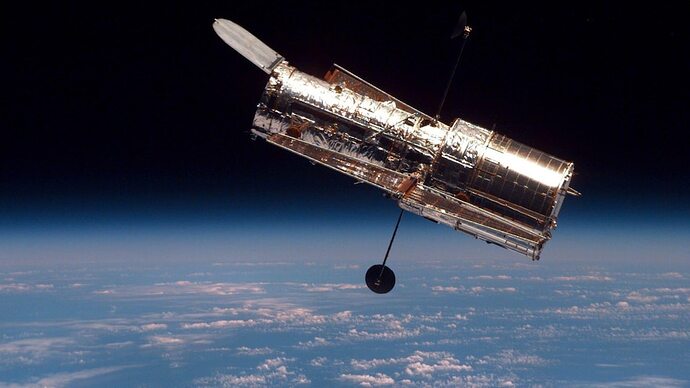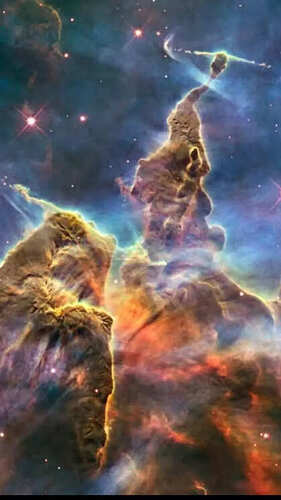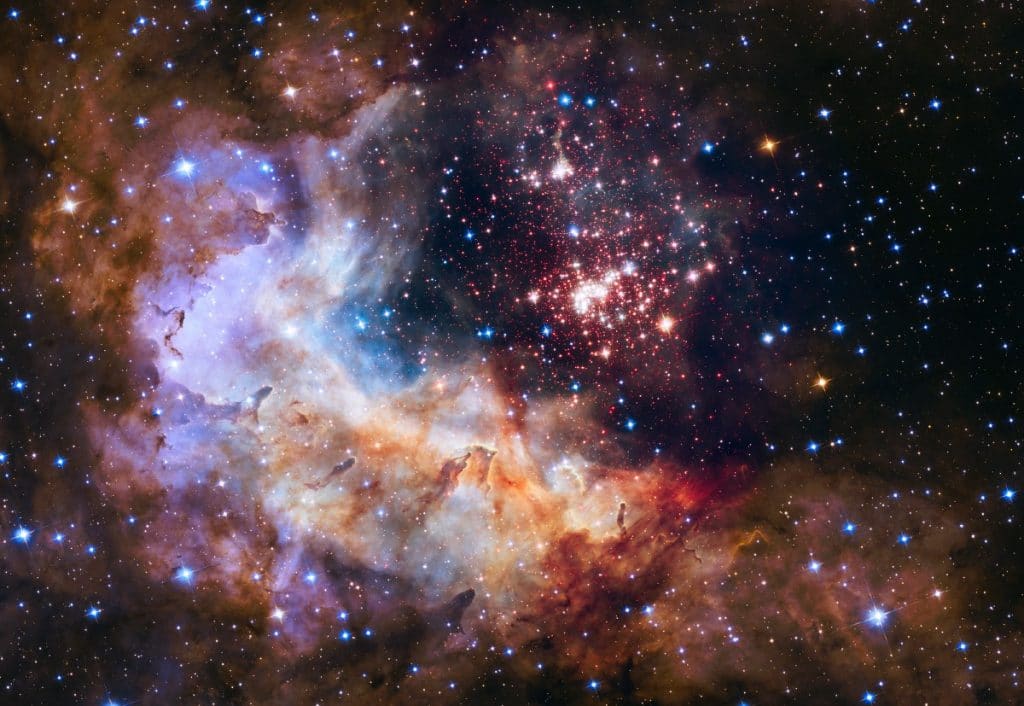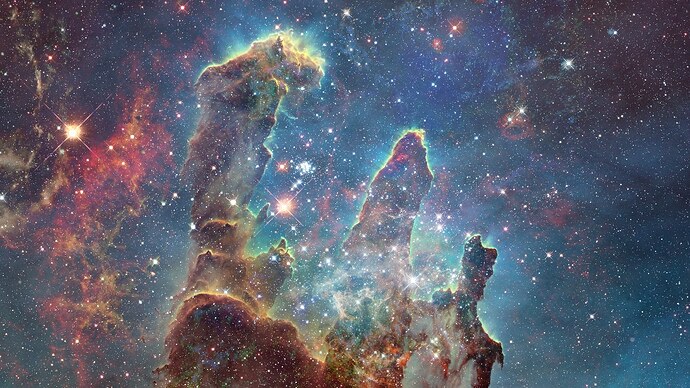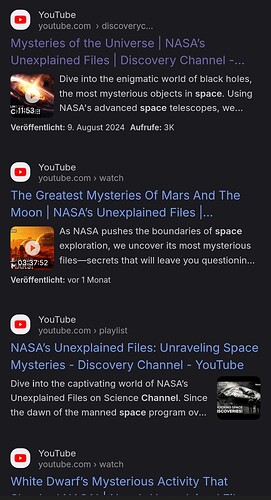The Hubble Space Telescope celebrated its 35th birthday in April 2025, marking 35 years since its launch on April 24, 1990. Over these three and a half decades, Hubble has profoundly transformed our understanding of the universe through its groundbreaking observations.
Time flies… Is really 35 years already? Must be gettin’ old…
Already 35 years. Unbelievable. And at the beginning they wanted to scrap the thing right after it had constructed the faulty images.
35 years old. It is becoming a middle aged observatory and still going strong. There needs to be a replacement for this old workhorse. Does NSA have any spare unused optical spy satellites lying around that can be repurposed?
While we may have JWST now, Hubble will forever be in our hearts ![]()
In the late 1930s, Hubble was supposed to have burned up from gravity. The main difference, however, is that hubble covers ultraviolet and near infrared
while jwst is a pure infrared observatory. In summary, hubble remains irreplaceable for UV and visible wavelengths, while JWST is revolutionizing the infrared range
Hubble is only 600 km away from the Earth, while JWST is 1.5 mil km away at a Lagrange point
Yes, thats why I wrote “may have” some see it as a complete replacement (which is wrong) but Hubble and JWST use complete different tech (as you just explained)
(sry i didnt clarify, today is one of those days where i am just very lazy at typing, while on others i write way to much)
I didn’t want to come across as a smartass ![]()
Sometimes it just comes over me. In germany there is a program called “space night science”, in which they celebrated hubble’s birthday and had a scientist from esa there to explain how hubble works. I wrote about this little bit of knowledge that I was able to pick up there ![]()
Don’t worry ![]()
Also, nice!
Wish we had something like that here in Austria..
The only thing that I saw so far was in a Tech museum in Linz where they had screens on walls and floor and we did some sort of space travel through the universe (in 3D) which was quite nice
Maybe this will work in austria too ![]()
I love the Science Busters from Austria ![]()
Happy Birthday Hubble. You are the source of many stunning desktop wallpapers in my collection!
I haven’t been aware of the fact that, despite the issues with the mirror geometry being incorrect, the launch of Hubble was initially planned for 1983 and that budget problems, additional technical difficulties and in the end the Challenger disaster resulted in the launch 7 years later than initially planned.
Nowadays the JWST gets all the attention… and I genuinely thought that Hubble has been retired already.
Also the fact that it was launched in 1990… my memory is somewhat skewed due to the repair missions, thought it was launched much later than that.
That really was a disastrous start. Hubble has brought us closer to the universe than ever before in human history. Before Hubble, there were only stars and galaxies and a lot of black. We probably can’t even imagine JWST and future explorations. JWST sees up to 300,000 years after the Big Bang. That is phenomenal. At some point, the theory of the Big Bang will also evaporate. Why should our universe be the only one?
Well, I guess it’s not the right place or time for mind-bending discussions. So lets just point to the fact that there will be an horizon of knowledge and science will push that boundary further. But humanity will never be able to achieve complete knowledge. For instance : We’re only capable to observe the universe within a sphere of 46.5 billion light-years. Everything beyond that - is simply not observable.
And on the other hand… We’re still not done to explore our own solar system. We’ve got only two probes that made it out of it. And we can’t even tell if we have truly found all of our neighboring planets yet.
I don’t really watch TV.. which is why I am oblivious to these ![]()
But thanks, maybe I will not forget to take a look at these ![]()
In the past I sometimes watched the space stuff on Discovery channel. There is some really nice stuff on there.. Forgot how the program is called tho, they have multiple things on there sometime if I remember correctly..
Edit: they also seem to have some stuff on yt
Check out the yt channel Astrum. They’ve got a lots of videos that might amaze you.
The multiverse theory in no way rules out the big bang. The big bang is only as far back as we can calculate, so if there is a multiverse, each universe may have it’s own big bang (sort of, kind of, or a starting point). To ask the question “What came before the big bang” which I have heard many times is a nonsequitur, meaning it doesn’t follow logic that there was a before, since as far as we can tell as for our universe it’s where spacetime of our universe came into existence, and the inflation began. There are other theories like the big bounce…
You also wrote in one post “In the late 1930s, Hubble was supposed to have burned up from gravity.” Hubble was launched in 1990, so you may want to correct that, and it’s not gravity that would burn it up, but have it gradually come closer to earth and then once it reaches the atmosphere burn up from the immense friction due to it’s speed and the concentration of atmospheric matter.
Hubble is just above our atmosphere at an altitude of ~ 320 miles (515 km). Currently it has no thrusters of any kind, but it does have electromagnetic torque bars that are used to control it’s trajectory within earths magnetic field, and there is a thruster module for it that will be attached once the time comes, to control its reentry so it will come down over an ocean or large open area like the Australian outback or the Sahara dessert. since it may not completely burn up. It’s reentry is not expected until the mid 2030’s at the earliest (I think that’s where you made the 1930’s mistake, and you used past tense not future tense).
For now it’s still working and still taking great pictures, now focused on planets in our solar system, and also for other missions it is suited for, so more groovy and amazing pictures are coming in. ![]()
You guys haven’t kept up with recent upgrades. Thanks to the addition of a special purple filter, Hubble was able to capture an image of the primordial egg a few nanoseconds before the onset of inflation. I knew it was small & fast, but I had no idea…
As I’ve recently watched this video about the hubble images, it might be of interest to some of you.
